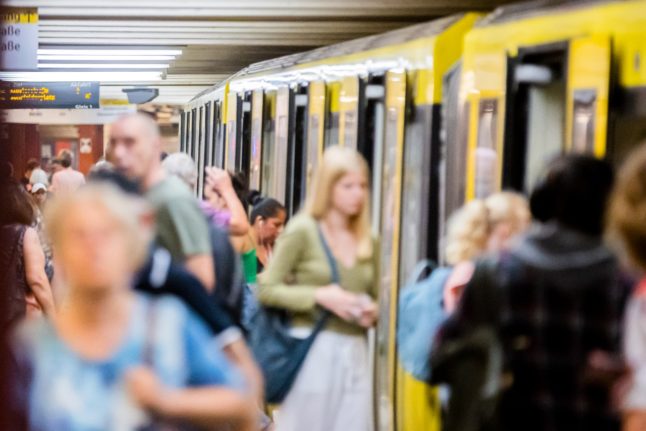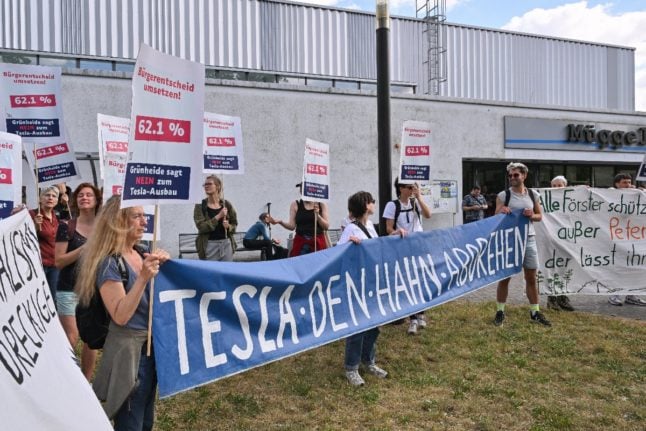The capital’s Senate had left people guessing to the last minute without an official confirmation, as concerns about the funding of the ticket remained.
But the green light came on Tuesday.
“For affordable and sustainable mobility – the Senate has cleared the way for a #29EuroTicket today,” tweeted the office for the Berlin mayor. “The ticket will be valid in the Berlin city area from July 1st. Sales start on April 23rd.”
The mayor’s office called it an “important step to advance the transport transformation” to more climate-friendly options.
Für eine bezahlbare und nachhaltige Mobilität: Der Senat hat heute den Weg für ein #29EuroTicket freigemacht! Ab dem 1. Juli soll das Ticket im Berliner Stadtgebiet gelten. Der Verkauf startet am 23. April. Ein wichtiger Schritt, um die Verkehrswende in Berlin voranzubringen. pic.twitter.com/XNDquwkb9z
— Senatskanzlei Berlin (@RegBerlin) April 16, 2024
The offer is aimed at people who find the €49 monthly ‘Deutschland’ ticket too expensive and don’t have access to a discounted company ticket.
“This makes Berlin a pioneer for affordable mobility in Germany and Europe,” said Senator for Economic Affairs Franziska Giffey (SPD), who is also head of the supervisory board of Berlin transport operator BVG on Tuesday.
The ticket will be available for the AB fare zone in Berlin on public transport like buses, trams and the U-Bahn as an annual subscription or ‘Abo’ – rather than a monthly pass. That means it has to be ordered with a minimum term of 12 months. After that, it is automatically renewed and can be cancelled on a monthly basis.
It can only be used by the holder registered on the card. Cardholders can travel with children under the age of six and a dog free of charge, but not a bike.
It’s worth nothing that BER airport and popular Berlin commuter town Potsdam are not covered by the travel pass because they are outside the AB zones.
The new offer will be expensive for the city. In addition to the subsidies for the nationwide Deutschlandticket which amounts to around €135 million for Berlin, the state will have to bear additional hefty costs. An annual sum of €300 million has been set aside in the state budget.
READ ALSO: Is Berlin’s €29 ticket for public transport coming back?
During a visit to BVG on Tuesday, Finance Senator Stefan Evers (CDU) did not rule out the possibility of Berlin having to spend up to €350 million annually. “If the Deutschlandticket becomes more expensive as expected, more Berliners will switch to the Berlin travelcard,” he said, adding that the subsidy would then increase.
The return of the €29 ticket
Berlin brought in a temporary €29 option covering transport in the city’s AB zones after the success of the €9 ticket back in the summer of 2022.
The €29 ticket was axed after the federal government brought in the Deutschlandticket – covering the whole of Germany’s public transport system – a year ago.
However, the Social Democrats (SPD), which govern as a junior partner in a coalition with the centre-right Christian Democrats (CDU), campaigned heavily to keep the ticket during both the capital’s 2023 repeat election and resulting coalition negotiations.
The ticket is expected to stay in place until at least 2026.




 Please whitelist us to continue reading.
Please whitelist us to continue reading.
Member comments